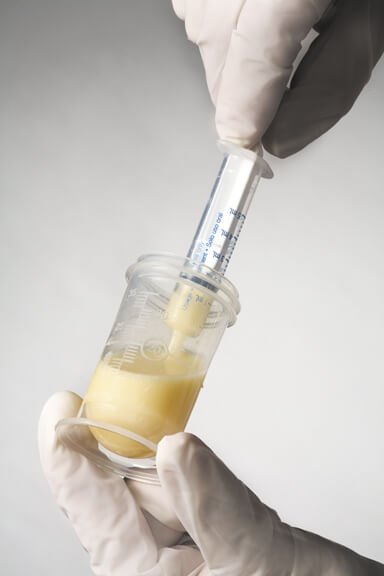
Proline-Rich Polypeptides (PRPs) are part of colostrum or “first milk”. They are crucial for the development of newborns and support the immune and nervous systems. When supplemented, PRPs may enhance cognition in the elderly. Read on to learn the beneficial roles of PRPs and the potential side effects of supplementation.
What are Proline-Rich Polypeptides?
Proline-rich polypeptides (PRPs), also known as Colostrinin, are derived from colostrum – the milk given to a newborn mammal as its first nourishment [1].
PRPs are not species-specific i.e PRPs derived from cow milk works on all mammals [2].
Since the immune system of a newborn is not fully developed, PRPs play an important role in immunity with their antiviral, antibacterial, anti-tumor, and immunoregulatory activities [1].
PRPs could be important, not only for the development of the immune and nervous systems of newborns but also in improving the health status of elderly persons [1].
As we will discuss, PRPs influence a wide variety of biological functions, such as the regulation of cell and tissue processes and the interactions of signal and regulatory proteins [1].
Snapshot
Proponents:
- Improve brain function and memory
- Regulate the immune system and inflammation
- Have antiviral properties
- Protect the brain and nerves
- Combat cellular damage & aging
Skeptics:
- Supplementation is poorly researched
- Can cause mild insomnia and anxiety
- May not be suitable for people with dairy intolerance
- Not recommended for pregnant women
Benefits & Roles of Proline-Rich Polypeptides (PRPs)
Please note: the roles and benefits of PRPs supplied through mother’s milk may not translate to PRP supplementation.
Possibly Effective:
Cognitive Function
In a clinical trial with 46 mild Alzheimer’s patients, those who were given colostrinin (PRPs) either improved or didn’t worsen. None of the patients given placebo or selenium showed improvements [3].
In two studies of 138 Alzheimer’s patients, long-term colostrinin use (4-28 months) slowed down the decline in memory, cognitive function, and daily activity [4, 5].
Animal studies discovered that PRPs had beneficial effects on the cognitive functioning and memory of older rats [6, 7].
Chicks who had PRP-rich Colostrum injected into a part of their brain responsible for learning showed a marked improvement in memory function [8].
That said, regular colostrum supplements on the market may only contain PRPs in negligible amounts. Some manufacturers do list it specifically as an ingredient, but its therapeutic dosage for cognitive dysfunction based on the published studies is unclear [3].
Animal and Cellular Research (Lacking Evidence)
No clinical evidence supports the use of PRPs for any of the conditions listed in this section. Below is a summary of the existing animal and cell-based studies; they should guide further investigational efforts but should not be interpreted as supportive of any health benefit.
Regulate the Immune System
PRPs encourage the growth of white blood cells before stimulating the white blood cells to become either helper T-cells or suppressor T-cells [9].
PRPs stimulate the activity of natural killer cells, the cells that actually attack and kill pathogens, as well as cancerous cells [10].
The net immune system effect of PRPs depend on the actual state of the animals studied. But broadly speaking, PRPs seem to restore the balance in cellular immune functions [6].
Regulate Inflammation
PRPs can stimulate the production of pro-inflammatory cytokines like TNF-a and Interferon-gamma (Th1 cytokine) in white blood cells, peritoneal cells, and placental and amniotic membranes [11, 12, 13].
They can increase the production of IL-6 and IL-10 in blood cell cultures [14].
PRPs raise the permeability of blood vessels in the skin in order to allow the passage of blood cells and cytokines into the infected area in which they are needed – this is a vital step in the inflammatory response [15].
They may also regulate inflammation by altering genetic expression [16].
Antiviral Effects
PRPs have been experimentally shown to provide immunity against several viruses, including:
Of particular note is PRPs ability to inhibit the replication of the Epstein-Barr virus and the human herpesvirus-6 (HHV-6) – both of which have been linked with autoimmune conditions and chronic fatigue syndrome [24, 25].
Cellular Damage & Aging
PRP acts as an antioxidant [26, 27].
When studied in mice, PRPs lowered reactive oxygen species (ROS), which cause cellular stress and damage [7].
PRPs reduce the chance of random mutations and mutations caused by ROS and toxins [28].
They are important for suppressing the uncontrolled activation of cells [1, 7].
Brain Protection
One experiment showed that PRPs possessed neuroprotective properties in mice with aluminum toxicity or neuronal damage from venom and toxins [29].
One review suggested that colostrinin may partly be responsible for brain-protective effects of certain dairy products [30].
PRP Risks and Side Effects
Keep in mind that the safety profile of PRPs is relatively unknown, given the lack of well-designed clinical studies. The list of side effects below is not a definite one, and you should consult your doctor about other potential side effects, based on your health condition and possible drug or supplement interactions.
In clinical trials, PRPs were generally safe and well-tolerated. Only one study reported any adverse side effects of PRP supplementation. These included mild anxiety, excessive talkativeness, and insomnia that only lasted for 3 to 4 days [7].
Children and pregnant women should avoid PRP supplements until we know more about their safety.


